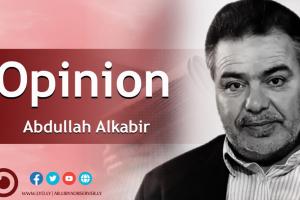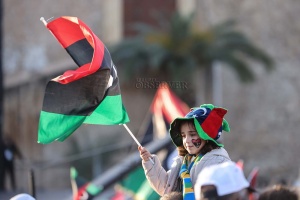By Abdullah Alkabir, Libyan political writer and commentator
A different approach to overcome the stalemate

A plethora of meetings and statements, but to one outcome! There are no elections on the foreseeable horizon that could open a window of change and bring hope to end the current state of affairs, in which lives, money, time, and sovereignty are wasted. The basic points of disagreement still exist, and they are almost just an excuse to abort the elections, circumvent to form a new government, and extend the transitional phase that the de facto authorities do not want to leave.
Following his meeting with the Chairman of the High National Election Commission (HNEC), the UN envoy Abdoulaye Bathily praised HNEC’s preparations for the electoral process, stressing that the United Nations will provide full support to HNEC to conduct the elections. The meeting discussed election laws, which HNEC had previously announced that it had received from the House of Representatives (HoR).
The discussion focused on the technical aspects of the laws, as HNEC, as well as UNSMIL, presented some technical observations about the laws, and it appears that the 6+6 Committee responded to these observations and made the required amendments. However, The High Council of State’s (HCS) declared adherence to the Bouznika version, confirms that the amendments went beyond technical points to Items of controversial issues, which the six-party committee sought to reach a formula that would be acceptable to both houses.
However, such acceptance did not come from the HoR and its speaker, who violated the Constitutional Amendment, and presented the draft laws for discussion in the HoR sessions, then referred them to HNEC, without informing the HCS and UNSMIL, instead addressing the UN Secretary-General urging him to mobilize international support for the formation of a new government.
Agila Saleh knows that changing the government requires the approval of the HCS, and therefore some concessions must be made in the draft laws, such as acceptance of HCS position in preventing the candidacy of military personnel and candidates with dual nationalities. This concession Agila cannot make, because in doing so he agrees to exclude his key ally Khalifa Haftar. This is a scenario that will hasten his ouster from HoR presidency, and the introduction of a new presidency that will be more intransigent in its positions.
Agila Saleh’s bypassing of the UN envoy, and addressing Guterres directly, was an attempt to marginalize the role of the envoy, who did not announce any clear change in his position, and is still urging everyone to negotiate and agree on the draft election laws. Bathily also does not see that the matter warrants for the formation of a new government, but rather to go on working with the existence of a unified government, inclusive of all parties.
Western countries, and foremost the USA, support Bathily’s vision and position on the elections and government issues, but they do not put enough pressure to push all parties, especially those intransigents in their positions, to respond and engage in Bathily’s project.
The de facto authorities, east and west, realize that expanding participation in any dialogue sponsored by UNSMIL means the entry of political and military parties with different positions and interests, and through the space granted to them in the dialogue, they will have an influence on the outcomes, which will necessarily not be what the HoR and the HCS want.
After all the six-party committee meetings in Morocco, the laws it adopted, and then the additional meetings at home, in response to pressure from some parties to amend some items, and the UN envoy’s continued meetings and consultations, the election file did not advance an inch, and therefore all these meetings and consultations were running in a vicious circle.
The way to overcome the current stalemate is to search for a new approach to conduct parliamentary elections, which supporters expand every day, and bypass the parties to the conflict that will not accept any elections or results that would end their authority. This certainly requires international and regional consensus, the features of which have not yet emerged.
Disclaimer: The views and opinions expressed in this article are those of the writer, and do not necessarily reflect those of the Libya Observer



